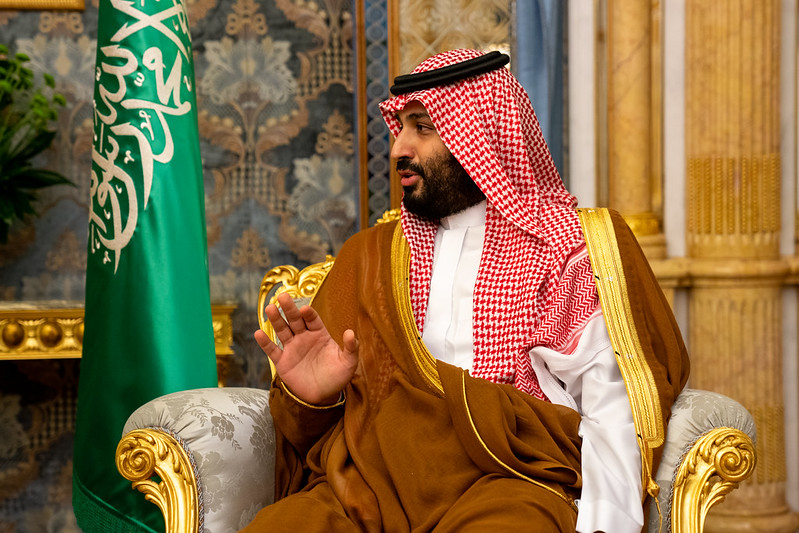
The U.S.-Saudi relationship is stuck. America’s policy toward the kingdom is rooted in flawed rationales and supported by a system of lobbying and influence designed to sustain the status quo. Those policies are proving ineffective at navigating the changing landscape, both in the Middle East and globally, while reaping virtually no benefits for the United States. The longer these fruitless policies persist, the more they will harm U.S. interests.
The long‐standing rationales for close U.S.-Saudi relations—centered on oil, counterterrorism, and preserving regional stability—are flawed. What Washington needs from the region on those issues is quite limited and simple to achieve. Despite the high costs and dubious benefits of the current approach to Saudi Arabia, there is a growing chorus in Washington to deepen the relationship with Riyadh. New rationales for expanding the relationship include the return of great power competition to the Middle East and the expansion of the Abraham Accords, which are increasingly being linked together as the new lodestar of Middle East policy. These new rationales also do not withstand scrutiny. It is time for a fundamental reevaluation of the U.S.-Saudi relationship. The United States should approach Saudi Arabia as it would any other state that does not share our interests or our values: from arm’s length.
Introduction
There is a growing chorus in Washington to deepen the U.S. relationship with Saudi Arabia and the Middle East more generally. Some argue that the problems between Washington and Riyadh are the result of U.S. unreliability and that the only way to mend the relationship is by reaching a new strategic compact with Saudi Arabia that would include increased U.S. security commitments to the kingdom. According to this perspective, Saudi Arabia has become more important, and not less, to the advancement of U.S. interests. These arguments are buttressed by a broader network of special interests and lobbying in Washington that is designed to sustain status quo policies and American primacy in the Middle East.
Saudi officials are likewise calling for building a new‐and‐improved U.S.-Saudi relationship. For example, Reema Bandar al‐Saud, Saudi Arabia’s ambassador to the United States, notes that “there have been some turbulent waters in the U.S.-Saudi relationship” but argues that Riyadh’s relationship with Washington is more important than ever and so the two countries must work together to “build a partnership around energy, stability, and regional growth.”
Today, U.S. and Saudi strategic interests do not align. No amount of concessions to Riyadh will change this. To the contrary: Saudi Arabia actively undermines both U.S. interests and values.
These arguments are wrong. Today, U.S. and Saudi strategic interests do not align. No amount of concessions to Riyadh will change this. To the contrary: Saudi Arabia actively undermines both U.S. interests and values. Despite this disconnect, the United States has yet to adjust its course and continues to operate on autopilot toward Saudi Arabia—and the Middle East more generally—without a concrete agenda or set of explicit strategic interests. This has resulted in counterproductive policies that undermine regional stability, implicate the United States in the actions of problematic actors such as Saudi Arabia, and damage long‐term U.S. interests.
The Biden administration is eagerly trying to bolster the U.S.-Saudi relationship, presenting new rationales for increasing American commitments to the Middle East. First is the return of great power competition to the Middle East and globally. Second is the expansion of the series of normalization deals brokered, in part, by the United States between Israel and several Arab states, popularly referred to as the Abraham Accords. Operating under these new rationales, Biden is currently considering going where no other president has gone before: signing a mutual security pact with Saudi Arabia and helping the kingdom develop a civilian nuclear program in return for Riyadh normalizing relations with Israel.
Read more here.




